

Redmond, WA
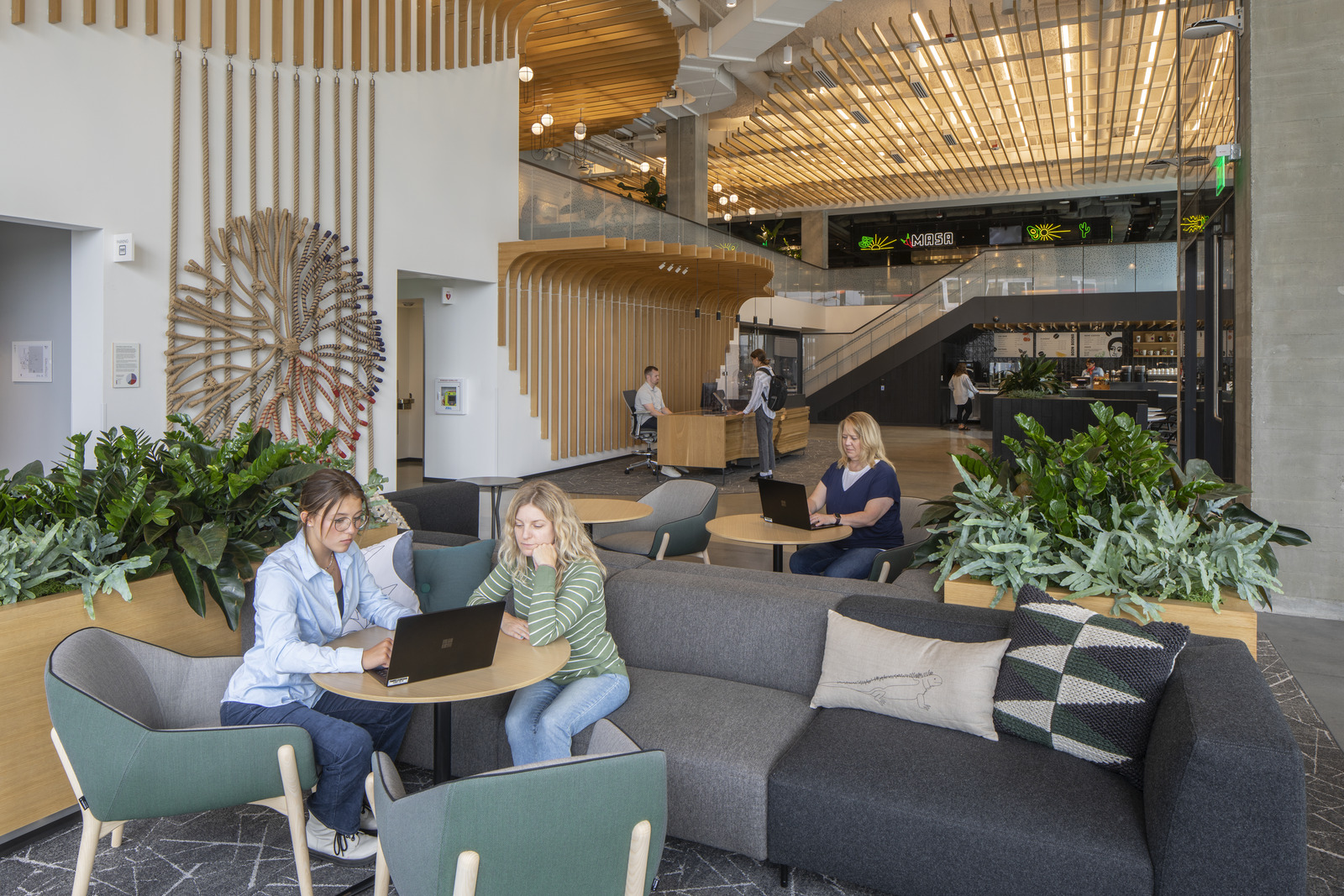
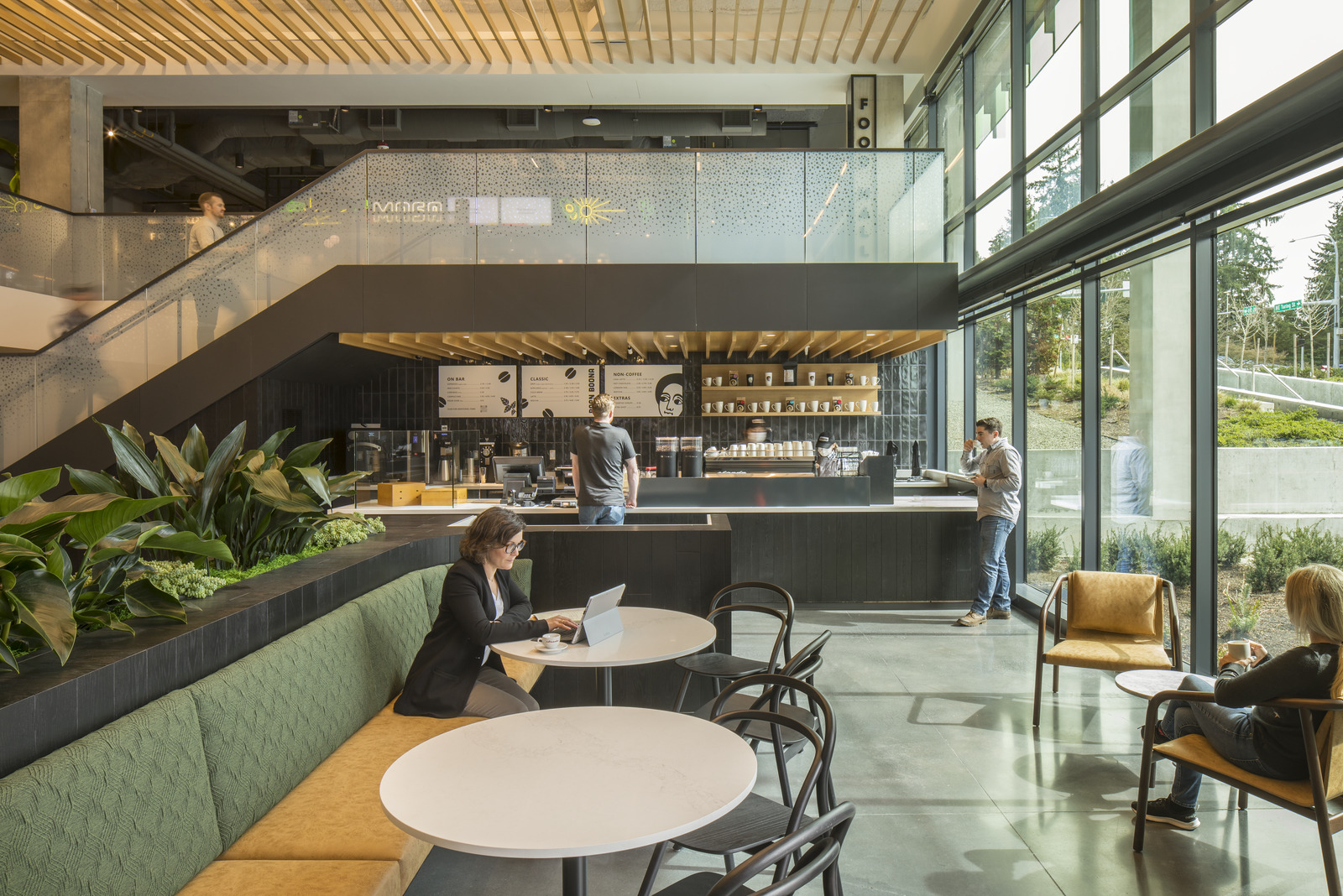
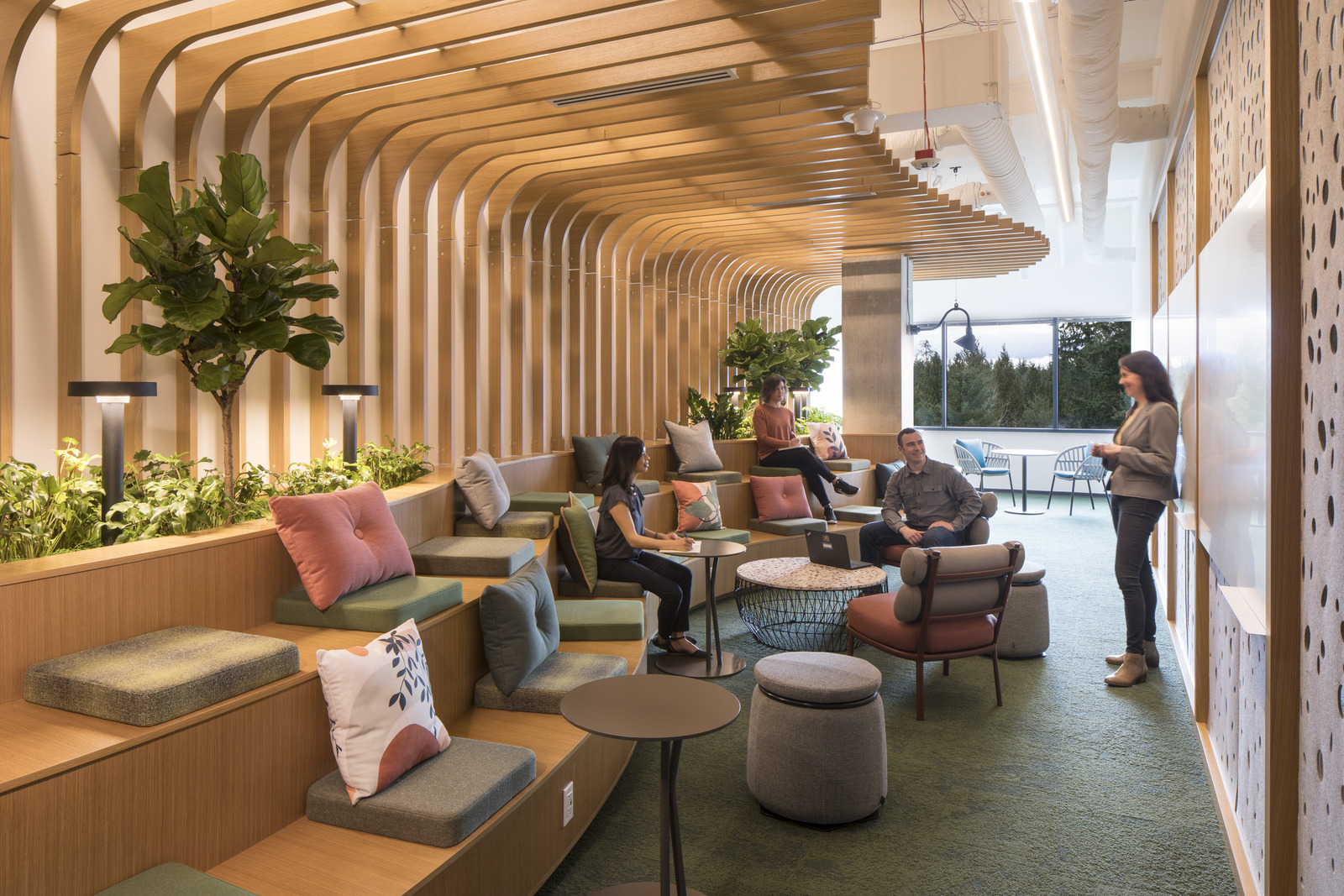
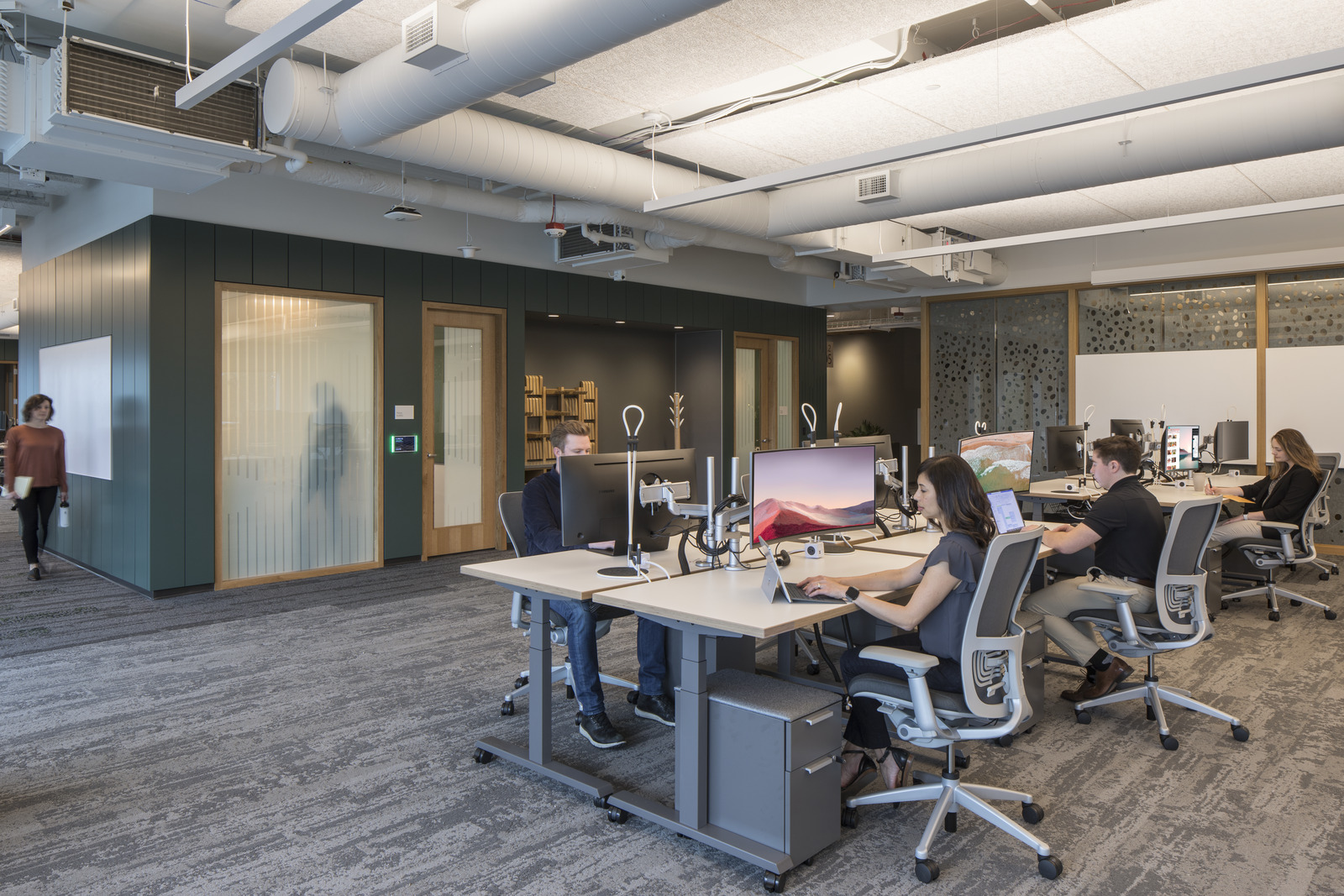
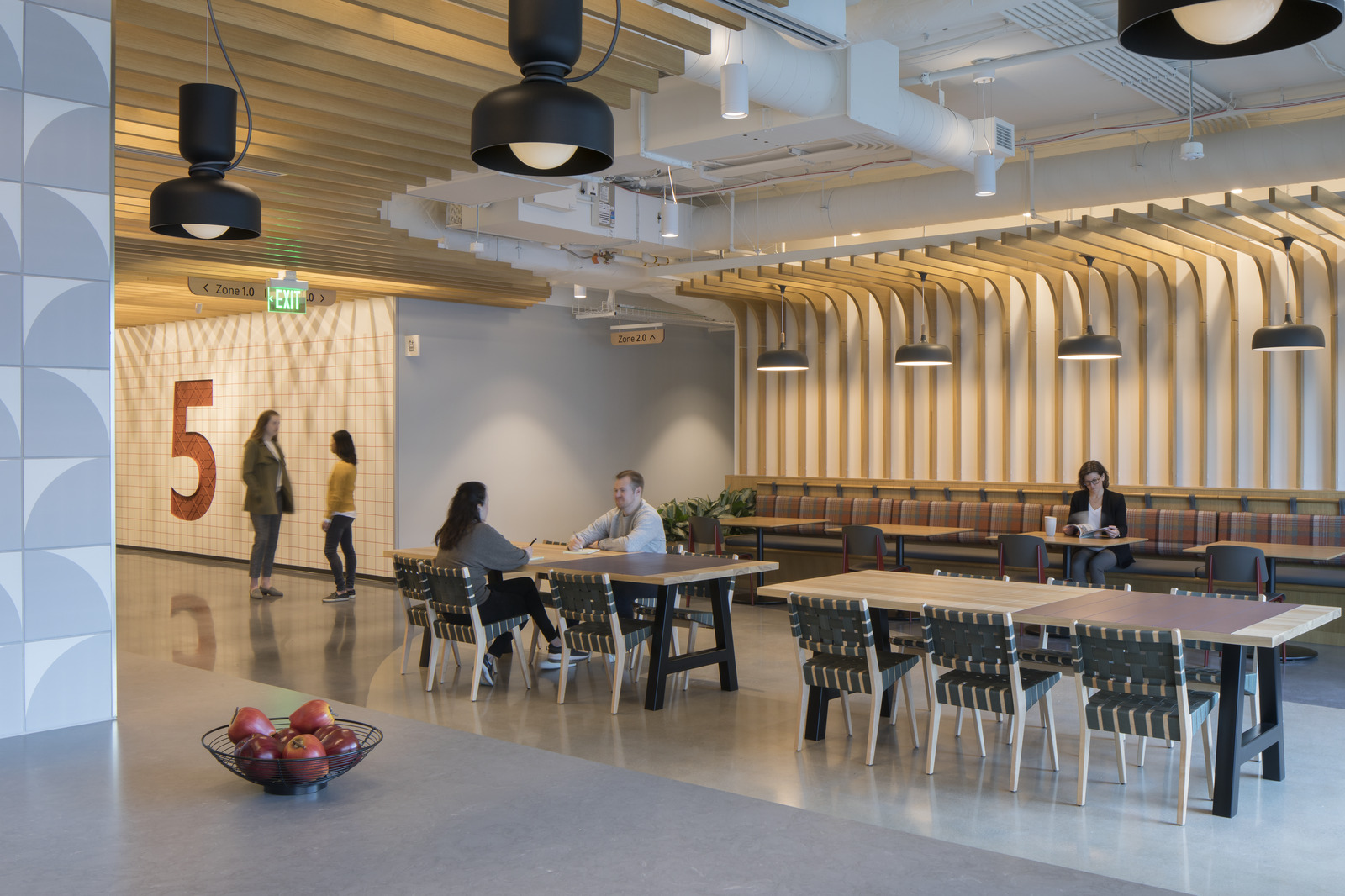
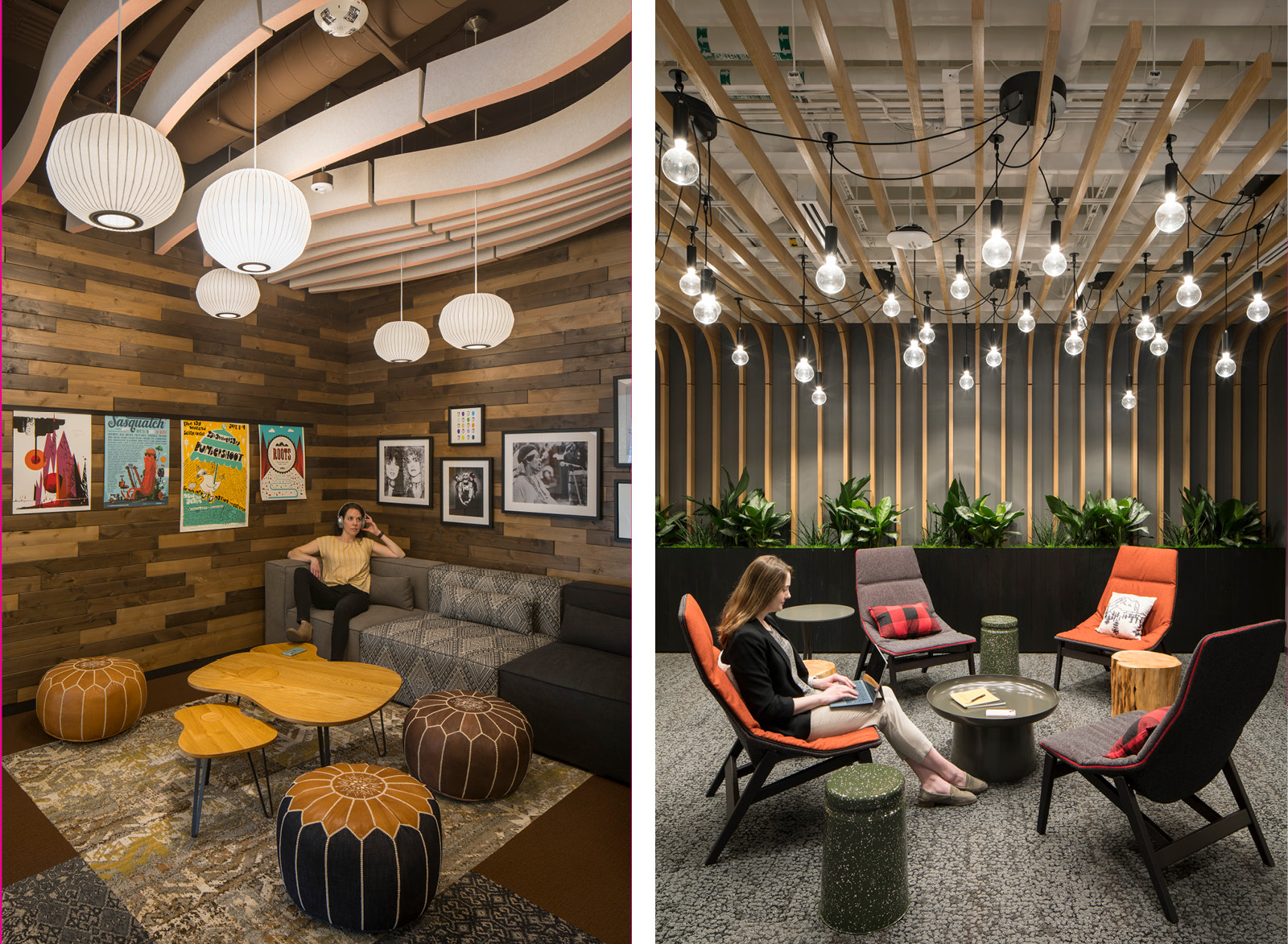
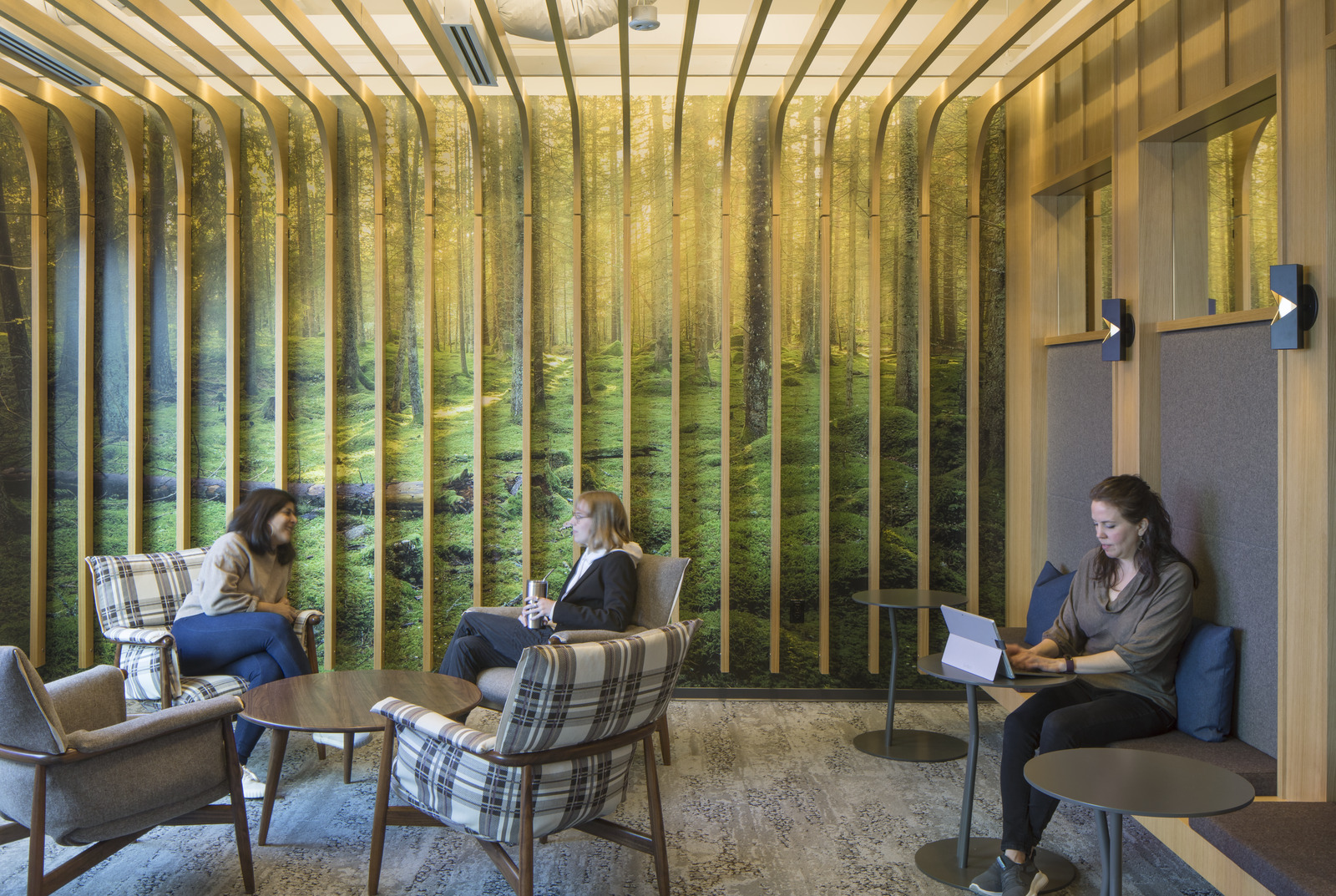
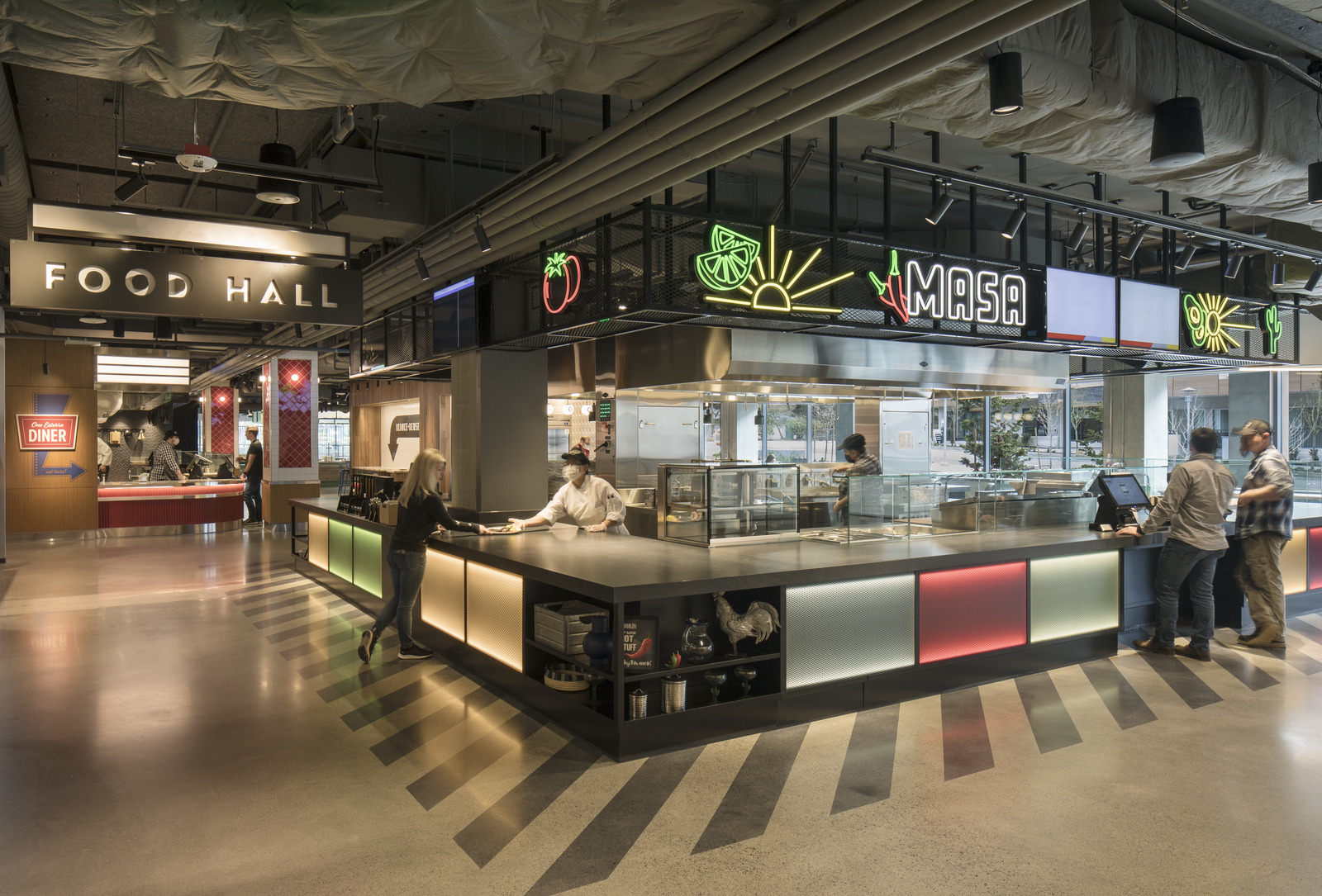
Redmond, WA
The sustainability story is so impactful...it is moving the needle for future sustainability goals.
Showcasing guiding principles of humanity, connectivity, and intelligence, this new 246,000sf Net Zero Carbon-designed workplace articulates a design concept of a natural network. Each workplace floor narrates the changing ecosystem through customized materials, patterns, and graphics, beginning with the mycorrhizal layer and emerging through the canopy layer.
By alternating spaces of work and gathering, employees experience community, brand, and culture. Each workplace floor features a kitchenette hub serving as the most active, communal space, while an award-winning, all-electric urban food hall at the street level reaffirms the client’s goal to reduce operational energy.
Dispersed throughout each floor are alternative workspaces that support varied levels of collaboration and focused work to provide employees with choice in the work environment. Similar to how a forest network operates symbiotically, these workspaces provide diverse experiences one would enjoy in a forest, such as camping, a tree swing, or dining outdoors. A curved wood canopy connects the alternative workspaces and delineates circulation as employees move throughout the building. Collaboration spaces, focus rooms, and creative amenities, complemented by daylighting and biophilia, create an environment in which employees can connect to nature and each other while engaging in their best work.
Climate
This Net-Zero Carbon building is certified LEED Platinum and pursuing the International Living Future Institute’s zero carbon certification—achieved by an all-electric building design, the meticulous tracking of material sourcing, and modeled embodied carbon to inform design decisions. Seeing the limitation of creating a carbon-neutral office space within a developer core and shell project, the design team collaborated with the client and developer to influence energy efficiency strategies beyond the typical TI scope, including HVAC upgrades and improved system controls. A whole-building life cycle assessment evaluated ceilings, flooring, walls, and interior partition assemblies to minimize embodied carbon. Through strategic materials selection our team was able to reduce the Global Warming Potential by 18% over a baseline building design.
Health
Biophilia and a connection to the outdoors were essential design drivers to support occupant wellness. The seven floors of the building are designed around a natural network concept differentiating materials, patterns, color, and wayfinding as employees and visitors move through the spaces. In addition to creating a naturally pleasing environment, delivering high-quality air was essential to support the occupants. Wet applied costings and major finish materials meet the rigorous GreenGuard Gold standard for emissions and most flooring is PVC-free, bio-based, and carbon-negative.
Equity
The project sourced 94.3% wood from FSC-certified forests, helping support regional ecosystems and the people who depend on the health of the forests for their livelihood. In addition to sourcing materials with an eye towards equity along the supply chain, we aimed to ensure that every one of the building’s occupants, from office workers to support staff, spent their day in a quality, healthy space. The dining hall’s commercial kitchen is 100% electric, preventing cooks and other kitchen employees from breathing the harmful combustion gases common in many kitchens while providing a cooler, more comfortable work environment.
Size
246,000 sf
Recognitions
LEED Platinum
IIDA Oregon, 2023 Impact Award for Future of Design (Urban Food Hall)